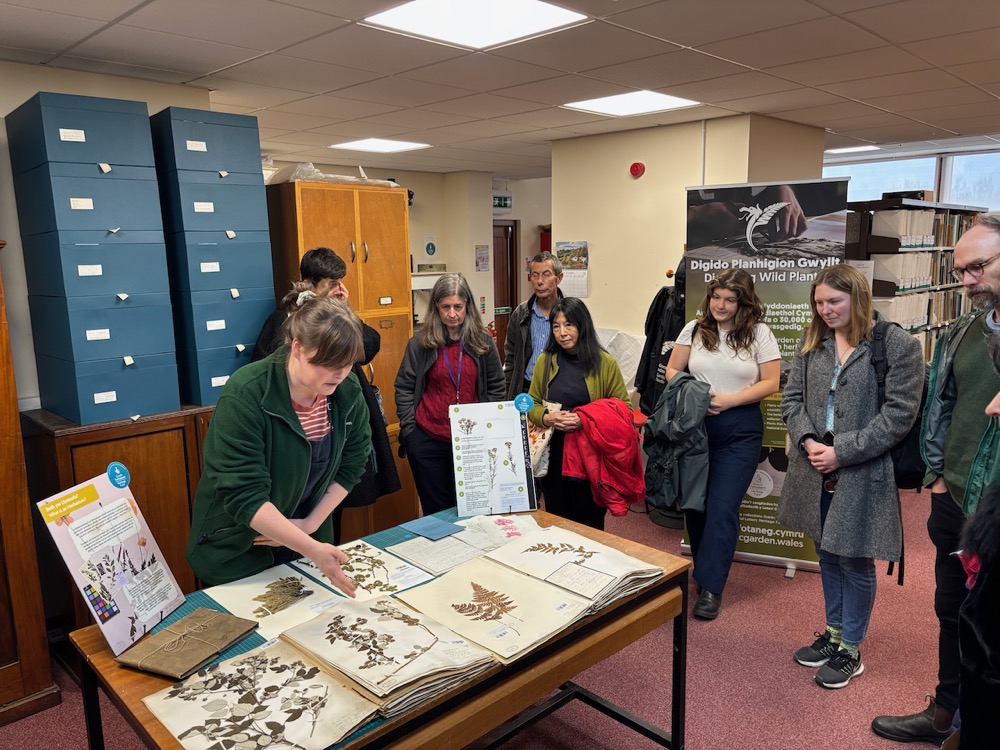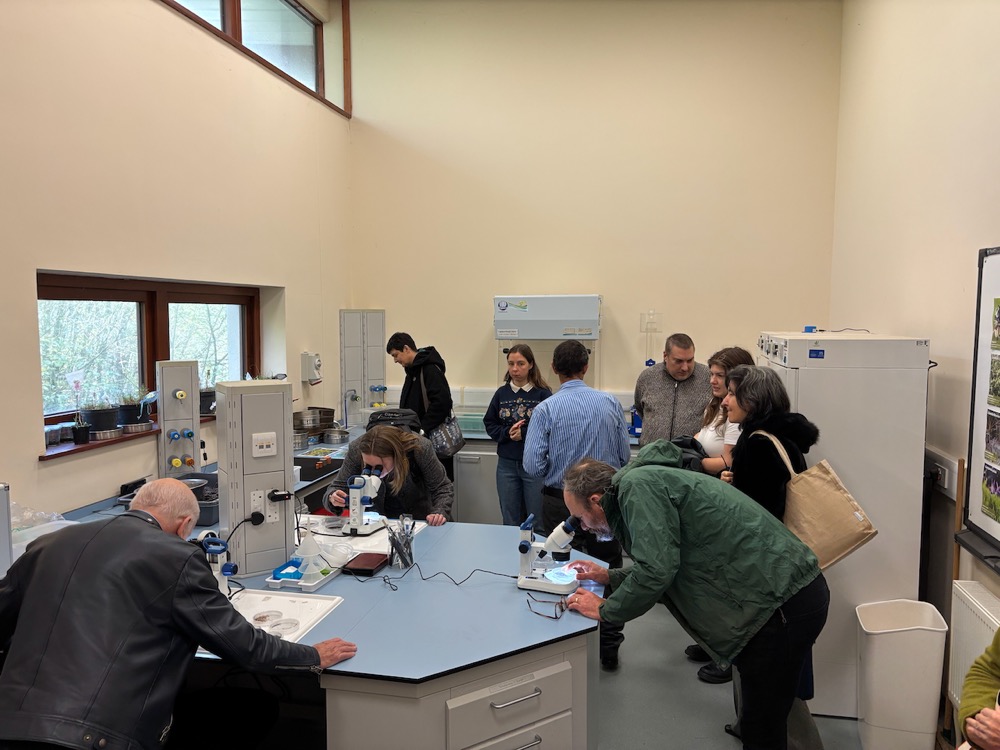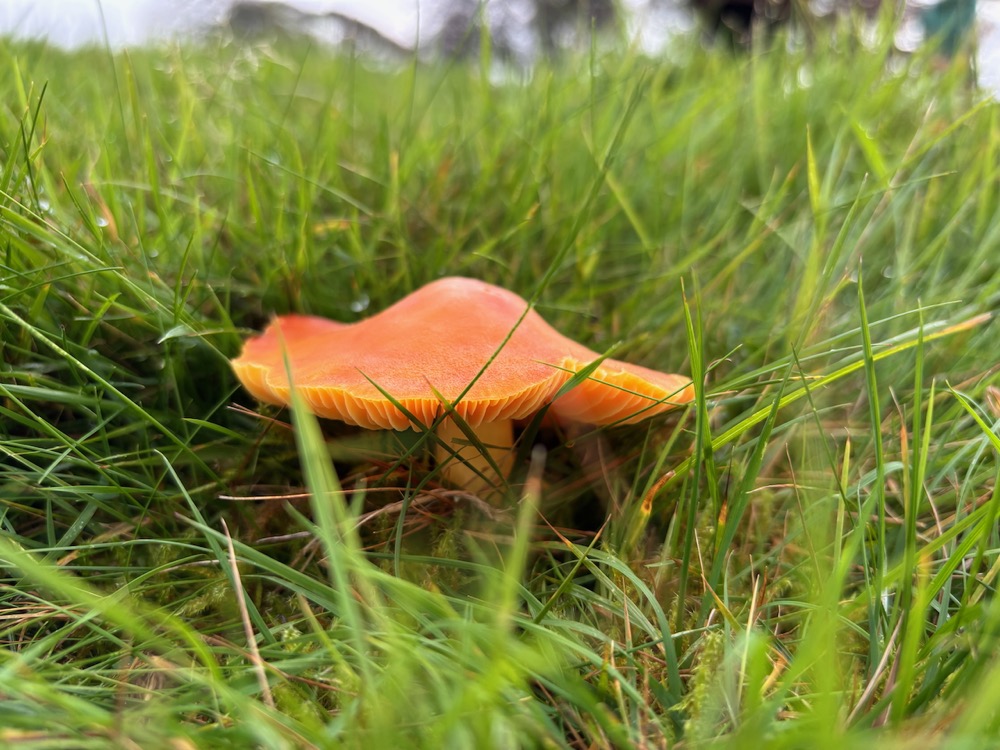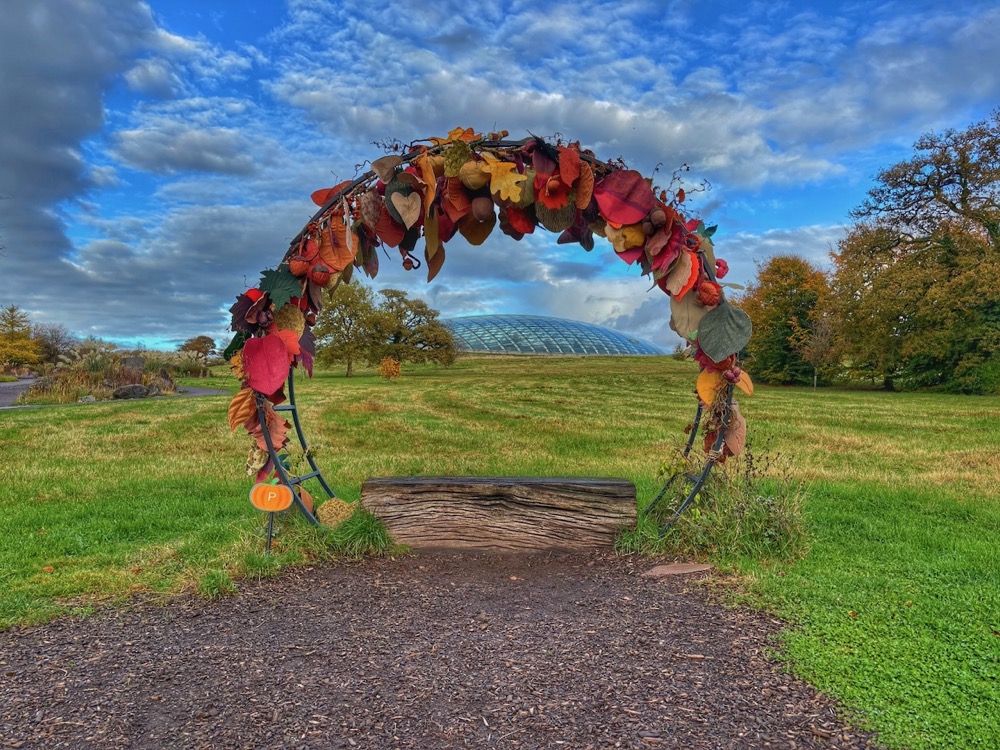Plant Science Wales Brings Collaboration and Discovery to the Fore at the National Botanic Garden of Wales
National Botanic Garden of Wales
04 November 2025
The Plant Science Wales event, held on October 21st–22nd at the National Botanic Garden of Wales, brought together researchers, students, and professionals from across Wales for two days of exploration, discussion, and collaboration.
Organised jointly by IBERS at Aberystwyth University and the National Botanic Garden of Wales (NBGW) with support from the Learned Society of Wales, the event showcased the depth and diversity of plant science research happening across the nation.
Day One began with behind-the-scenes access to the Garden’s Herbarium historic collections and seed bank, a tour of the meadows and cultivated gardens, and an introduction to the site’s rich fungal biodiversity. This included the colourful waxcaps that were looking particularly good in the pastures at this time of year.
 |  |
|---|---|
 |  |
Day Two featured a full programme of talks and panels with around 40 delegates from universities, research organisations and industry. The day emphasised collaboration, knowledge sharing, and building partnerships to strengthen the Welsh plant science community.
Opening Remarks
- Prof. Rob Beynon (Learned Society of Wales) urged the community to break down institutional barriers and work together as a united research network, with particular attention to involving early career researchers.
- Dr Lucy Sutherland (NBGW) and Prof. Iain Donnison (IBERS) who co-chaired the event, provided a concise history of Plant Science Wales and outlined the network’s evolving mission to build capacity and collaboration across the field.
Food and Agri-Tech
The first themed session focused on crop improvement, genomics and resilience, with speakers from IBERS showcasing how Welsh science is helping address global food-security challenges:
- Dr Catherine Howarth presented advances in oat breeding, highlighting the development of a pangenome to capture the full diversity of the species and accelerate the breeding of resilient, high-value varieties.
- Dr Kerrie Farrar discussed the use of genomic prediction to speed up breeding in Miscanthus species, helping develop crops adapted to future climates while maximising yield and sustainability.
- Dr Andrew Lloyd explored new approaches to unlocking genetic variation through meiotic recombination, mutation breeding and emerging technologies such as CRISPR and prime editing.
The session ended with an open discussion including the public perceptions of genetic modification, and how researchers can communicate the benefits and safeguards of modern breeding approaches more effectively.
Conservation and Biodiversity session
In the Conservation and Biodiversity session,
- Dr Laura Jones(NBGW) outlined the Garden’s vital work conserving plants and fungi, protecting pollinators, and maintaining the herbarium and seed bank collections. She also discussed recent efforts to use DNA barcoding and a project using honey analysis to track the plants visited by pollinators and explore how Wales’ plant landscapes have changed over time. Her work bridges ecology, conservation, and citizen science.
- Dr Hannah Vallin(IBERS) built on this theme with her research using DNA metabarcoding to study plant–herbivore interactions across different altitudes, climates, and management regimes. Her collaboration with the Garden is helping to reveal how environmental change shapes biodiversity at multiple scales.
- Dr Nathan Smith(Amgueddfa Cymru) highlighted the scientific value of historical fungal records, showing how data from past decades can illuminate co-occurrence data and present-day ecological patterns.
Discussion in this session focused on dataset quality and integration, gaps in biodiversity monitoring across Wales, and how biodiversity metrics can inform policy and land management.
Plant Discovery / Biochemistry
The Plant Discovery session moved the conversation into plant chemistry and natural products:
- Dr Robert Nash (Phytoquest) showcased how advances in analytical methods and high-throughput screening are accelerating the discovery of plant-derived compounds for drug discovery and improved nutrition. This included promising leads from cucumbers for joint health. He emphasised the translational potential of linking chemical diversity with biological screening pipelines.
- Prof. John Pickett (Cardiff University) explored natural compounds for sustainability, describing how plant chemistry can inform environmentally friendly pest management and the development of bioactive compounds that reduce reliance on synthetic inputs.
The session underlined the importance of cross-disciplinary links between chemists, biologists and industry to turn botanical knowledge into tangible societal benefits.
Biophilia and the Built Environment
The Biophilia session examined how plants and design can improve human wellbeing:
- Prof. Leighton Phillips (Hywel Dda Health Board) presented on biophilic design in healthcare, showing how integrating natural elements into clinical environments can support patient recovery and staff wellbeing.
- Dr Simon Lannon (School of Architecture) discussed the role of plants in architectural design, from living walls to thoughtfully planned green spaces, and sports stadiums. Highlighting the benefits these bring to urban resilience and occupant health.
The ensuing discussion considered practical barriers and opportunities for embedding green infrastructure in new and existing buildings, and how evidence from plant science and health research can inform planning and policy.
Delegates reported that the event provided excellent opportunities for networking; many new collaborations were seeded, and PhD students and early career researchers played an active role in shaping the conversation. Ideas for the future direction of the network were submitted and will be used to inform decisions on the next steps for Plant Science Wales.
The event concluded with a renewed sense of momentum — and a clear message: Wales’ strength in plant science lies in its people, its partnerships, and its willingness to share knowledge across disciplines.



